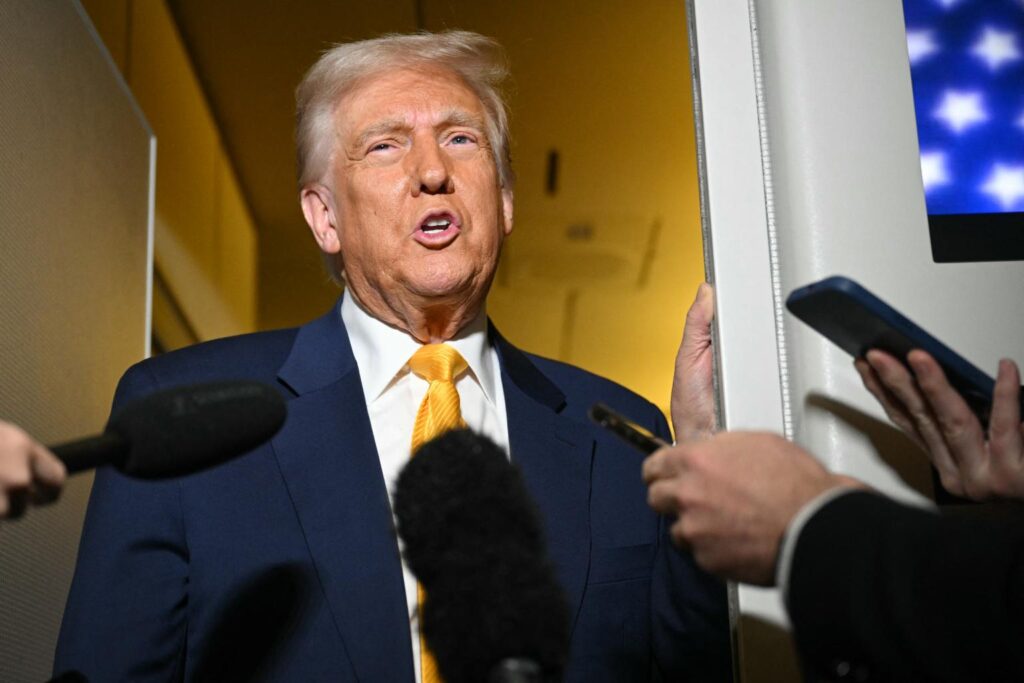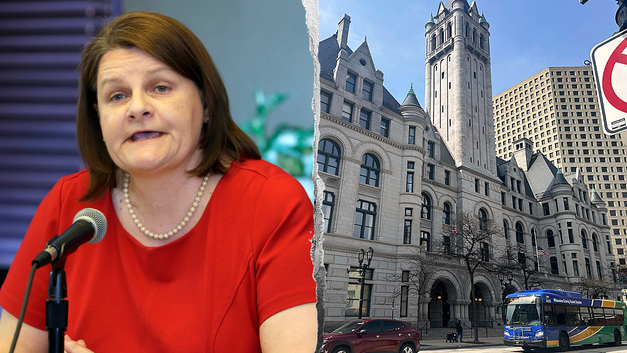
President Trump settled the debate over the tariffs on iPhones and other Chinese-made devices — saying that there is no “exemption” and that new duties are coming.
“NOBODY is getting ‘off the hook,’” Trump said on Truth Social Sunday. “There was no Tariff ‘exception’ announced on Friday. These products are subject to the existing 20% Fentanyl Tariffs, and they are just moving to a different Tariff ‘bucket.’”
“We are taking a look at Semiconductors and the WHOLE ELECTRONICS SUPPLY CHAIN in the upcoming National Security Tariff Investigations.”
Late in the day on Friday, Trump’s team filed a rule that exempted a myriad of electronic devices from the president’s steep “reciprocal” tariff on Chinese imports to the US.
The ruling appeared to grant a reprieve for Apple and other consumer electronics makers, who were facing tariffs of up to 145% under Trump’s sweeping new rules.
More than 80% of Apple products are assembled in China, according to data from Evercore ISI. Apple CEO Tim Cook has courted close relations with Trump amid the tariff push.
Even before Trump upped the ante on China, experts were suggesting that top iPhone models could increase in price to $2,300 under the tariff regime.
Prior to Trump’s clarification Sunday, Commerce Secretary Howard Lutnick publicly explained that electronics being imported from China will soon face their own unique tariff.
“So what he’s doing is he’s saying they’re exempt from the reciprocal tariffs, but they’re included in the semiconductor tariffs, which are coming in probably a month or two. So these are coming soon,” Lutnick told ABC News’ “This Week” on Sunday.
“All those products are going to come under semiconductors, and they’re going to have a special focus type of tariff to make sure that those products get restored.”
Last Wednesday, as Trump’s suite of customized “reciprocal” tariff rates were set to go into effect, the president abruptly reversed course and announced a 90-day pause while his team negotiates new deals with various countries. Trump remarked that people were “getting a little bit yippy, a little bit afraid” as markets cratered amid tariff fears.



